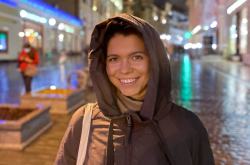Switching to remote work was, obviously, not easy for everyone. Lack of the usual office discipline, daily schedules, and face-to-face communication with colleagues, the need to combine work and household chores, and deal with many distractions – all this has become a serious challenge for many newly remote workers.
WeWork, an international flexible workplace network, and Hamilton Place Strategies, a consulting agency, conducted a joint study to find out that having experienced remote work, 45% of people noticed the decrease in their productivity and 80% said they felt distant from their colleagues. Most of the respondents (70%) expressed their willingness to return back to the office, although half of them would prefer to combine both work formats.
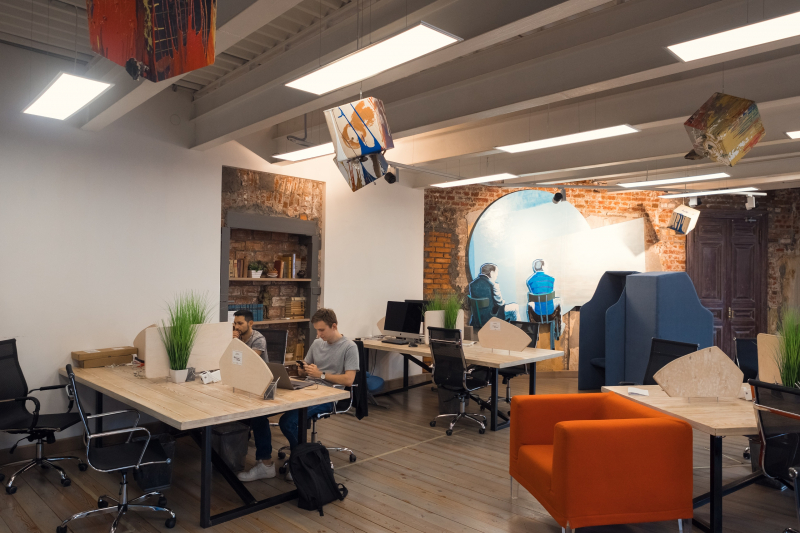
One solution many, including large companies, have come up with is moving away from permanent offices to flexible coworking spaces. For example, St. Petersburg's Yasnaya Polyana hosts one of the Samokat grocery delivery service offices, the creative department of the Bushe chain of bakeries, the Russian branch of the British electric van manufacturer Arrival, and more than a hundred freelancers and entrepreneurs. Among them are many ITMO graduates: freelancers, remote workers, and owners of their own IT companies.
ITMO.NEWS met with the residents of Yasnaya Polyana to learn more about what brought them to the coworking space, why they prefer it to others, and why it is crucial for them to be part of the community.
Irina Ivanova, head of development at Yasnaya Polyana coworking
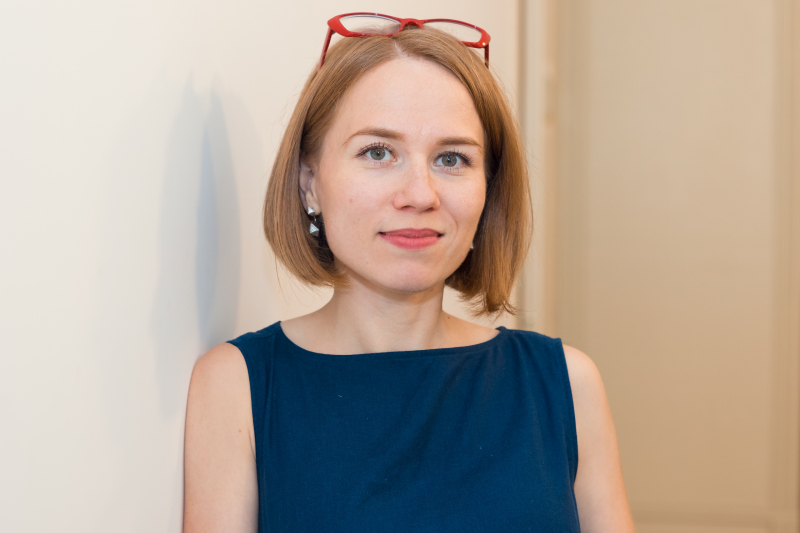
In 2019, Irina graduated from ITMO University with a major in ecology but she has never worked in this field: “It was important for me that my work was connected with communication and people, not with paperwork and coordination,” says Irina.
I have been working for Yasnaya Polyana since its foundation, and recently we celebrated its third anniversary. It is not only the opportunity to work with various communities that attracts me. I think this is our future. At Yasnaya Polyana, we bring together representatives of various fields, mainly from IT – we are like a meeting venue for them. We regularly organize events – both educational and entertainment – so that residents can communicate in a relaxed atmosphere, make friends, hold negotiations, and even create some kind of joint projects or businesses. We already have a whole lot of such stories, when our residents formed an entire team from people working at the coworking space.
Having come here once, you will forever become a part of the community – just like in ITMO.Family. Many of our former residents continue to chat, attend our events, and keep in touch.
Our main task is to create a community and maintain warm relations within it. This is what distinguishes us from standard offices – people come to us not only to work (although, of course, it is their main reason) but also to have quality time, communicate, and find "their" people. We host many theme events for residents: movie nights, joint breakfasts, brunches, parties, celebrations, concerts, and so on.
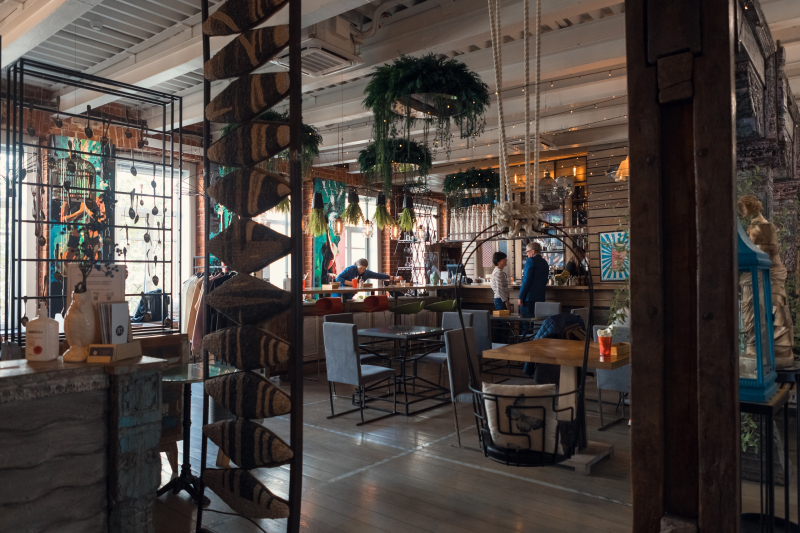
The active and innovative atmosphere created by many entrepreneurs drives the productivity of our residents.
Now we have over 500 residents. In two years, we have expanded to 6,200 square meters and have become the largest coworking space in St. Petersburg. And last year, we received the National COWORKING AWARDS prize for the best community, got into the top 10 of the Fontanka.ru’s Recognition and Influence award in the Cultural and Public Space nomination, and became the best flexible space in business according to the professional award of PROESTATE & TOBY AWARDS.
George Shaginyan, developer at Dodo Franchising, LLC
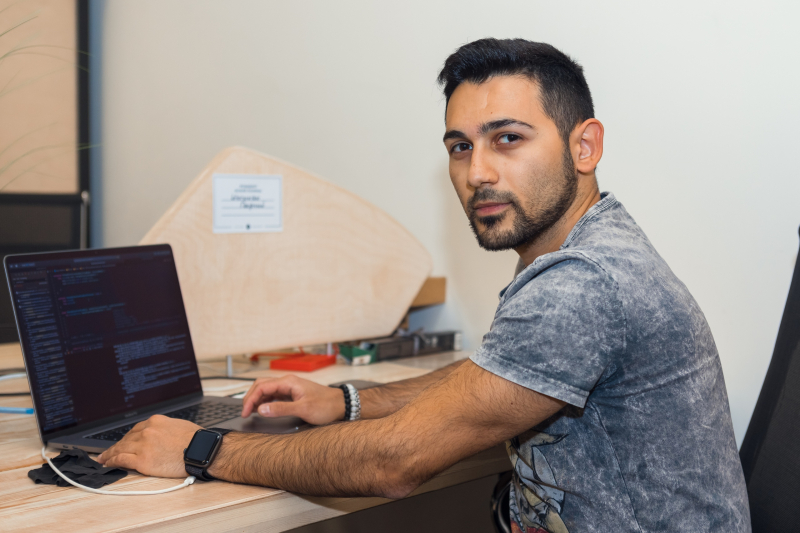
I graduated from ITMO’s Information Technologies and Programming Faculty in 2015. In my third year, I started freelancing, namely developing iOS mobile apps. Then, I got a job offer from a company that was engaged in outsourcing projects. There, my colleague Arseny Vasiliev, also an ITMO graduate, and I came up with the idea of making a mobile app Where is Shawarma, which would show the nearest places with good shawarma in St. Petersburg and Moscow. We've been running this startup in our spare time for almost four years. Recently, Dodo Pizza bought this project and now it is their own separate product. And we had the chance to join the team of a new franchise project – an app for ordering in the upcoming Doner 42 doner network, which will be launched shortly.
At Dodo Pizza, we were offered either to rent an office or a place in a coworking space. We decided that the two of us do not need a full-fledged office and we can settle in Yasnaya Polyana – we both found this solution really cool.
We have no strict schedule so if we want to work from home, we can do it. But, as a freelancer with a lot of experience, I understand that it is not always possible to work productively at home: it is very difficult to tune in, you become lazy, and you also have to cook for yourself. And in a coworking space, you don't even need to wash the dishes.
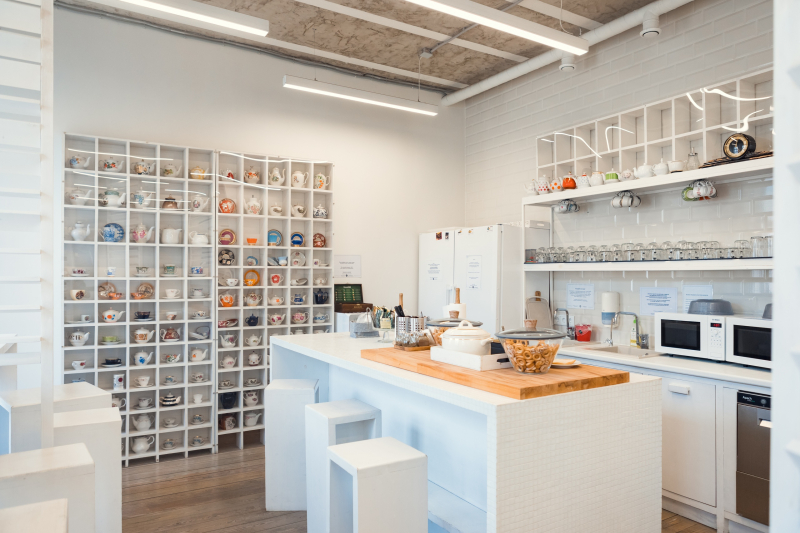
I also like the atmosphere: there are a lot of entrepreneurs, freelancers – they all are very interesting people. In the very first week of our stay here, at one of the parties, we met a lot of people, learned that our former colleagues work here, too, and met many old acquaintances.
I realized that I need to alternate between work from home and coworking. I don't come here every day but only two or three times a week. Sometimes it's more productive to work from home without any distractions but sometimes you need to talk to a colleague in-person and discuss the plan of further actions. I think that now all large companies have learned how to organize work remotely and some even, as far as I know, still do not let their employees go back to their offices. So this is a new norm that everyone should master.
Stanislav Saal, developer at Seller24 startup
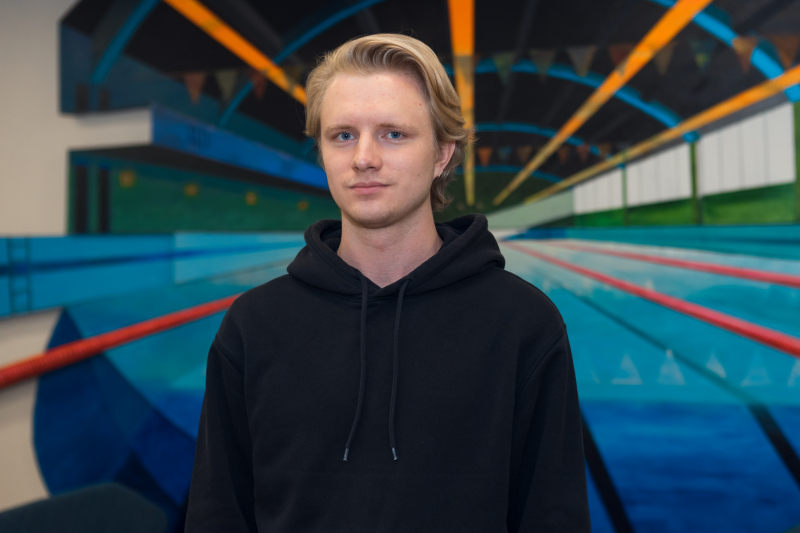
After the ninth grade, I decided to study programming in computer systems at a vocational school. Already in my second year, I started working as a freelancer, so after a while, I had to leave school, because it was no longer possible to combine it with work. I continued to freelance until recently because the quarantine has greatly influenced this market. So I started looking for a permanent job and came across many options. But it so happened that I found a job through the tech lead of this startup, who is just one of the residents of the coworking space. That is, in fact, I found a job precisely through the Yasnaya Polyana community. And then I had been a resident for only one month, but still I managed to fit in the community and to maintain relations with other residents after that.
Now, I work at Seller24 startup in Moscow. We are developing a platform that will help sellers place their products on marketplaces like Ozon, Wildberries, Beru, and so on. At the moment, it is almost ready and soon, we will release mvp.
I could work from home – I would even earn more money – but I chose coworking because at home I fall into a relaxed mode. It's difficult when there is always a sofa nearby to lie down and fall asleep on and you don't have to get up early to go somewhere. And if you live with someone, then they may distract you from your work. I also managed to become a part of the community, so it is interesting for me to come here, even just to have a chat. Moreover, we have similar interests as there are mainly people from the IT sector. I like the events that take place here and always participate in almost every one of them.
Ivan Korsakov, analyst at Samokat
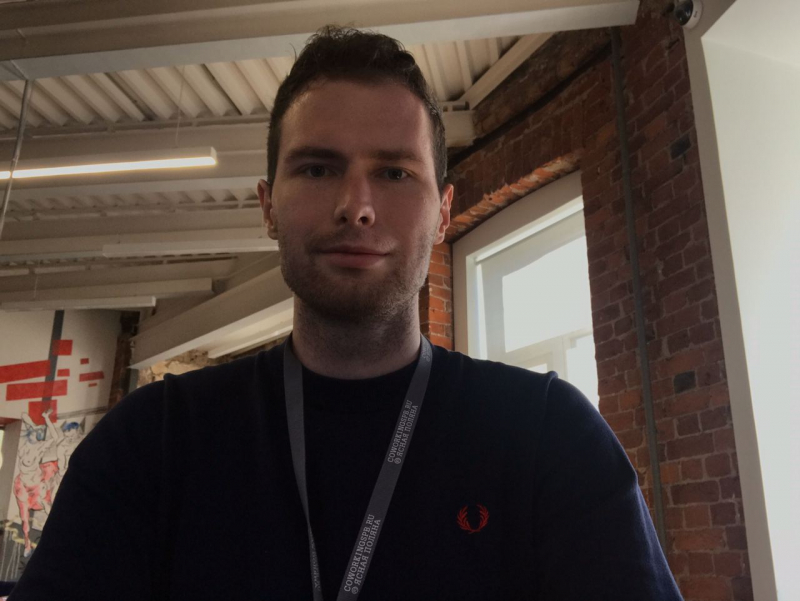
I studied at the Faculty of Photonics and Optical Information. I received my Master's degree in 2016 and dropped out of a PhD program in 2019. My path in analytics began with a part-time job at a startup, over time I studied this field and realized that it was more interesting to me than science.
I work on a dark store team. Dark stores are warehouse stores dedicated to serving orders. I help the team make data-driven decisions: I participate in the development of product metrics, design experiments, and prepare visual reportings to track results.
Many companies iteratively improve their products, step by step coming up with hypotheses “if we change or add this, our product will become better”. Next, the hypotheses are tested using statistical methods. All this is necessary to make the right decisions and avoid erroneous conclusions in favor of some hypotheses (for example, when the difference turned out randomly and not because of a change in the product).
The Samokat company has its own offices and one of them is located in Yasnaya Polyana. Therefore, some of the employees who are more comfortable with working from the office can do it here. Remote work is great, but still, live communication with colleagues allows you to solve many issues much faster, especially since it is more difficult for some to work from home in terms of discipline.
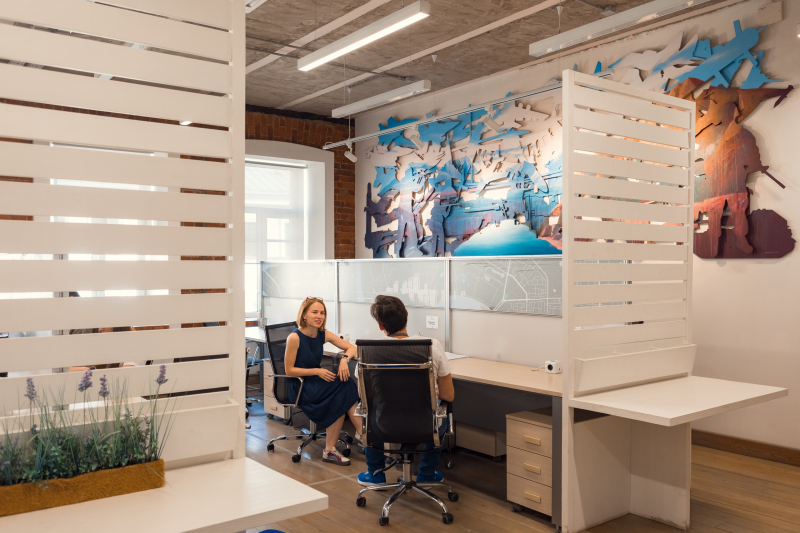
I only worked from home during the lockdown. Although there was such an opportunity before, I rarely used it. I live near my work, so for me, commuting is not such a big issue as for those spending hours to get to the office – and it may be a strong reason for staying at home. I like the office more because of the working and productive atmosphere. But in general, I am in for the mixed format when there is an opportunity to travel, work from different places, but at the same time, you can always return to the office.
Aram Azbekian, computer vision specialist at Arrival
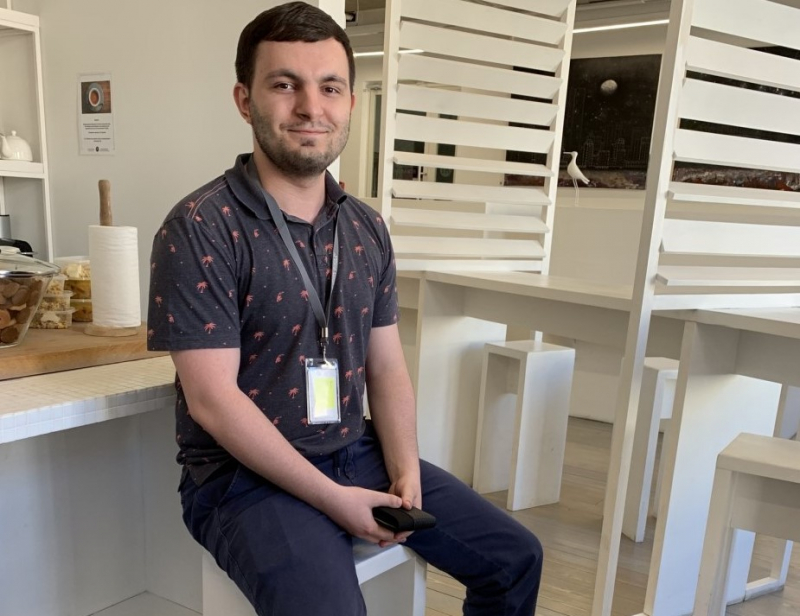
I studied at the Faculty of Control Systems and Robotics and finished my Master's degree in 2018. At the Arrival company, I do tasks related to determining the position of objects using a camera. Here, we strive to create the so-called “flexible” manufacturing, which will allow us to create different products in one factory. This is what conveyor production lacks, because, for example, an auto concern that assembles sedans on a conveyor belt (as is done now) will need to rebuild the entire factory in order to start assembling trucks. We want to create a universal “assembly shop” where the final product will itself form the assembly process and for which the entire set of technologies required will be divided into the so-called “base cells”, where a limited set of operations is performed.
The shift from a conveyor belt to a flexible production is directly related to the introduction of intelligent systems based on computer vision. Computer vision systems will allow an intelligent system to know exactly, for example, which parts are in stock and which ones are missing, where they are located in the factory, in what condition, and so on.
In Russia – in St. Petersburg – there is only one of the divisions of our company, its branch. And the main office is located in the UK, together with the main factory, where my colleagues run their algorithms. But this happens only after they are tested in our local laboratory. This is a necessary step to identify those small problems that can arise only during testing on real robots.
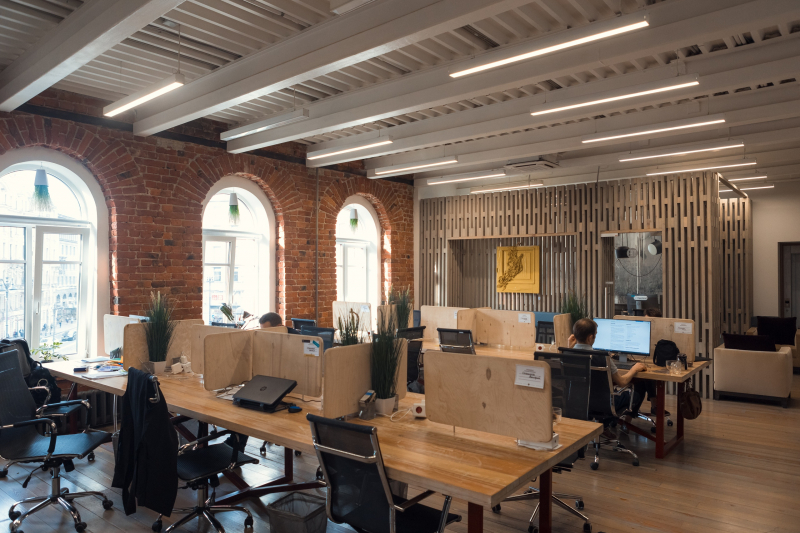
Before the pandemic, the further process consisted of deploying my colleagues to the UK and running the algorithms at the factory. However, the coronavirus and the subsequent closing of borders made their own adjustments: we had to resort to the help of integrators. Integrators are those people in production who are involved in the formation and launch of a general assembly script, without going into the details of how this or that algorithm works. And if earlier each of the teams could go on a business trip to test their components within the existing scenario, now several teams are implementing their updates at once, and the integrators on the spot are already running the script to state that nothing works. All this, as you might already guess, can cause terrible confusion.
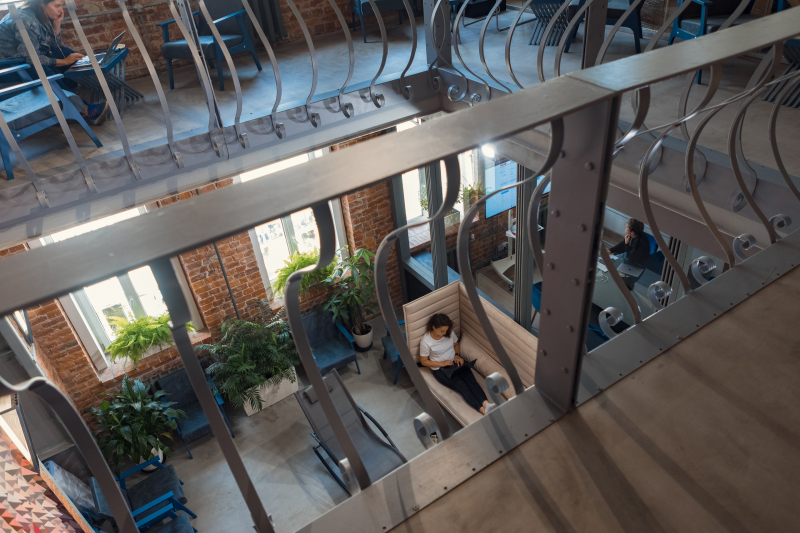
Before working at Arrival, I had no experience of working from home. And after being at home this year from March to July, I had something to compare. Personally, I am one of those people for whom home is a comfort zone. I cannot concentrate on solving problems when there is a fridge literally two meters away from my desktop.
I take full advantage of the coworking features. The events here turn out to be very atmospheric, I have a lot of friends here. We were all very worried that after the restrictions were lifted, people would not rush to the coworking space, and that all events would blow over. But this is not the case. All our beloved brunches, movie nights, and speaking clubs are here again and bring everyone back together.





